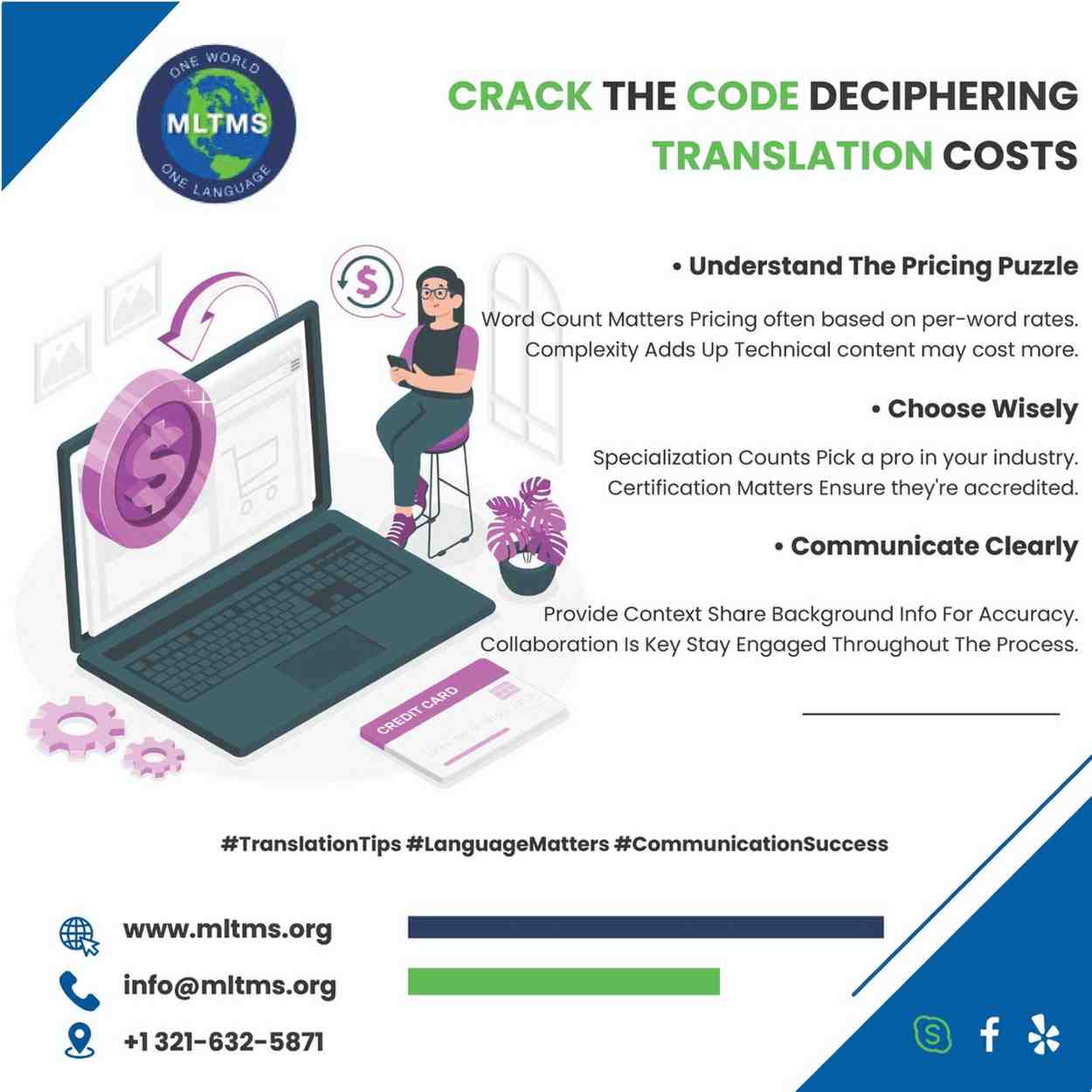Language proficiency is more important than ever in our increasingly international society. Selecting the correct interpreter or translation is essential, whether you’re a company growing abroad or a single person in need of help. It can be difficult to calculate translation costs, though. This blog article will explain the variables that affect translation costs and offer advice on how to select the best language expert for your requirements.
Recognising Interpretation vs. Translation
First of all, it’s critical to understand the differences between interpretation and translation. Whereas interpretation works with spoken language, translation entails translating written texts between languages. Because each demands a different set of talents, the rates can also differ.
Variables Impacting Translation Expenses
Language Pair: There is a big difference between the languages. Comparing common language pairs against rare or specialised language pairs may reveal more affordability.
The complexity of the Content: Translators with specialised or technical knowledge are frequently needed for these kinds of materials. Due to the specialised knowledge needed, translations in medicine, law, or technology may be more expensive.
Word Count: A lot of translators bill by the word. As a result, the price is directly impacted by the text’s length. Word length variations between languages can also have an impact on the final cost.
Project Urgency: Tight deadlines frequently translate into higher expenses. Translators could prioritize your job at a price if you need it finished quickly.
Translation Quality: Accurate and superior translations are worth the money, even though experienced translators may charge more.
Choosing the Best Interpreter or Translator
Determine What You Need: Make sure you specify the kind of service you need, such as live event interpretation or translation for written documents. Identifying your needs will help you locate a qualified specialist.
Verify Qualifications: Seek out interpreters and translators with relevant training and work experience in your field. Professional organisation memberships and certifications are reliable measures of expertise.
Request Samples: To evaluate the calibre of their translations, ask to see samples of their prior work. This guarantees they can handle the intricacy of your content and offers you a sense of their style.
Obtain quotations: To obtain quotations for your job, get in touch with many linguists. Ensure you provide all pertinent details, including the deadline, the extent, and any special requirements.
Think About Evaluations and Recommendations: Look up evaluations online or get referrals from other clients who have utilised translation services. Good comments can help you feel more confident in your decision.
Advice for Low-Cost Translation Services
Plan Ahead: Whenever feasible, steer clear of urgent requests. You can save money and have a more acceptable time frame if you plan ahead.
Utilise CAT Tools: CAT (computer-assisted translation) tools can lower expenses while raising efficiency. They expedite the process and assist translators in maintaining consistency.
Give Clear Instructions: Clearly explain to translators what you expect, your preferred style, and any specialised terms. As a result, fewer modifications are required, and the procedure runs more smoothly.
In summary, recognising the variables that affect price and selecting the best expert for your requirements are essential to figuring out translation expenses. You may communicate clearly across linguistic barriers by using these pointers to help you navigate the world of translation services more skill fully.


